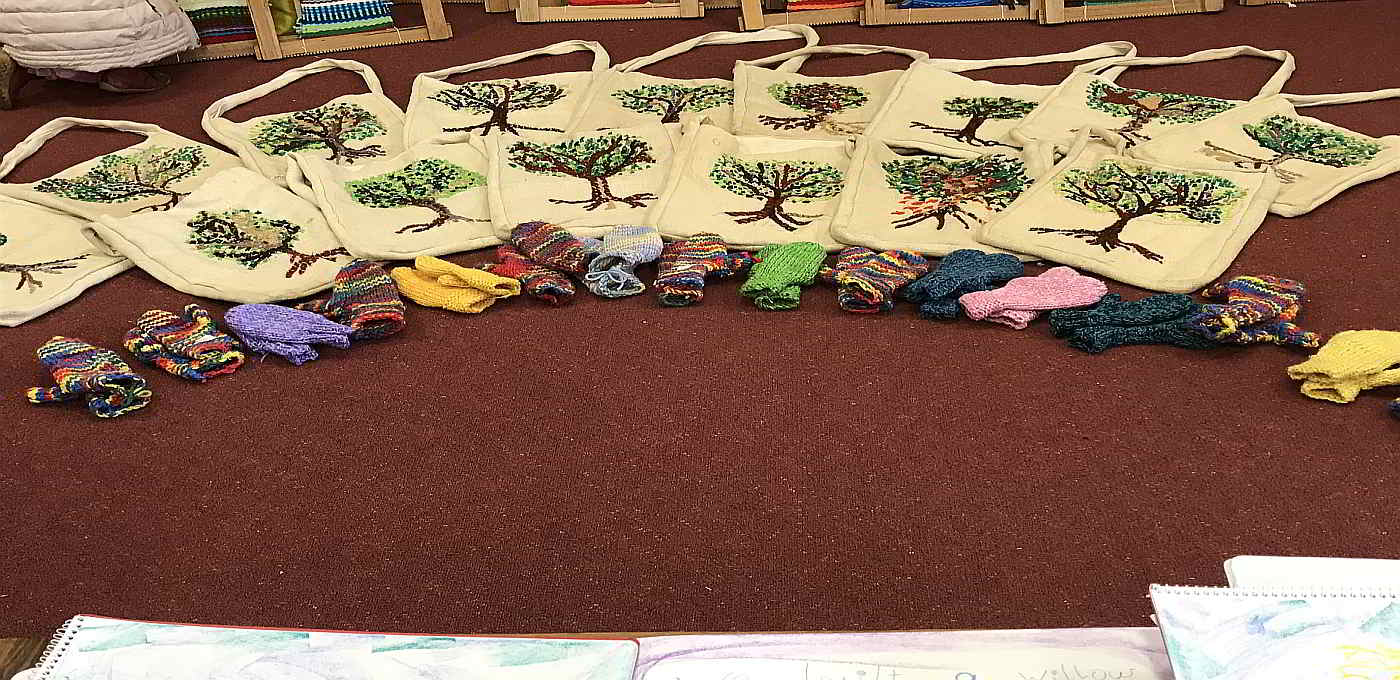Violin, Cello and Choir
In a Steiner School, music is viewed as a central part of the curriculum. Music is not just a subject on the timetable; it is a state of mind.
Students who are seriously devoted to making music, whether alone or with others, have an ability to approach the rest of their work in great depth, an ability to be socially harmonious with others, and a balanced perception of self-worth and the worth of others.
It should be noted that the music program in a Steiner school is delivered in two ways.
- As an integrated classroom-based program, and
- From Class 3 onwards, as individual and ensemble work taught outside the classroom.
Foreign Language – German
There are three important reasons for teaching a foreign language at DRSS.
Firstly the practical goal of being able to understand another language and communicating in a different way. This allows the children to develop more flexible thinking and draw on more than one way to express themselves.
Secondly, language introduces the children to the character, customs, traditions, literature, geography, history and music of another culture.
Thirdly the pedagogical aim of foreign language teaching is to assist in the overall development of the child, allowing more flexible thinking, giving insight into alternative ways of viewing the world thus broadening the child’s perspective.
German is a language where vowel and consonants are well balanced. It is a vivid and creative language with great flexibility in its structure. The strong sounds and the shaping quality of the consonants make it a language of will power.
Craft and Technology
It is important to understand that ‘technology’ refers to a process. It is not limited to information technology or mechanics, each of which is branches of technology.
Technology refers to the application and refinement of certain skills to produce practical, functional items for the benefit of the maker and/or the community.
Within the process of ‘technology’, the following steps can be identified:
- Encounter or identify a need for an object
- Design a tool or technique to answer that need
- Trial the use of that tool or technique
- Modify or improve the tool or technique to do the job more effectively
In a Steiner school, the Craft program not only fulfils these criteria abundantly, but adds to it the element of aesthetic appreciation. While the products of technology do not have to look beautiful, all the best technological applications have an inherent beauty in their function.
Working with the hands stimulates the development of thinking – thinking is internalised action. What is learned only in the mind is quickly forgotten, but what is learned with the body is there forever, such as riding a bicycle.
Apart from cultivating a sense of beauty and joy in the creative practical process, handwork activities also help to develop both fine and gross motor skills, as well as good organisational skills.
Eurythmy
Eurythmy awakens an appreciation of the dignity, beauty and worth of the human being. It develops poise, good carriage and a capacity for expressive gesture, as well as a sensitive awareness of others when working as a group. It enriches the appreciation of the beauty and power of language (poetry and prose), and develops listening ability, agility, sense of timing and co-ordination. It also involves an inner discipline, which improves the child’s learning abilities across the whole curriculum, providing another distinctive means of expression.
An important element in learning Eurythmy is its social aspect. The individual students in each class become acutely aware of not only their own movements but also of their classmates. The flow of the group works simultaneously and harmoniously as a whole.
The Eurythmist begins teaching simple rhythms and rod-exercises in the early years; following onto more complicated rhythmical exercises and the basic beginnings of speech and tone eurythmy to demonstrate elaborate representations of poetry, drama and music.
“A clever body breeds a clever mind”
Extra Lesson
Extra Lesson is designed to develop the children’s movements and is based upon the premise that difficulties in reading, writing and arithmetic could be due to inadequate spatial orientation, poor body geography and to sensory integration difficulties if a person has missed a stage in the first seven years of development. It is conducted by a trained therapist and is provided as individual sessions. A teacher may suggest extra lesson work for a particular child to support the work being done in class. New students coming into the school after Class One are usually required by the class teacher to have
Woodcraft
Woodcraft is an integral part of our curriculum, experienced in developmentally appropriate projects throughout the child’s Primary School experience. Beginning within the classroom and aligned to Main Lesson work, then becoming a specialist area of learning in Classes 5 and 6. Children develop a ‘feel’ for the possibilities, constraints and joys of working with a natural, once growing material. Their innate need to create and produce objects of beauty and utility is fulfilled by shaping wood into familiar, yet individual forms. Skill-building and an appreciation of the safe use and care of hand-tools is a key element of the program, as well as environmental responsibility in the respectful use of the raw materials.


